John Bercow
description: former British politician who was Speaker of the House of Commons from 2009 to 2019
13 results
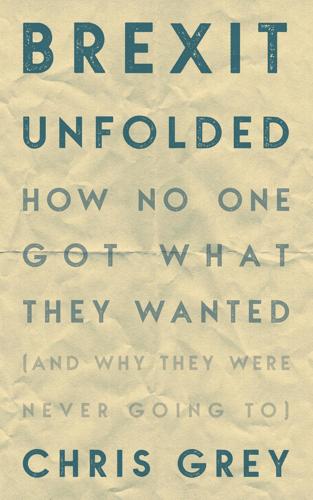
Brexit Unfolded: How No One Got What They Want (And Why They Were Never Going To)
by
Chris Grey
Published 22 Jun 2021
Postponement of the meaningful vote With it now abundantly clear that it would lose the meaningful vote itself, after just three of the scheduled five days of debate the government suddenly took the unusual step of ending the debate and announcing that the vote would be deferred to an unspecified date. It was described by the Speaker of the House of Commons, John Bercow – who was to play a significant role in the months to come – as ‘deeply discourteous’ to MPs. In the meantime, the government committed to go back to the EU to seek ‘further reassurances’ on the central issue of the backstop. Two days after postponing the meaningful vote, Theresa May faced another vote, this time one of no confidence in her leadership amongst Tory MPs, instigated primarily by the Brexiters.
…
Other preparations were subject to hundreds of government gagging orders. Whether this was to prevent alarm at how far-reaching the plans were or ridicule of their feebleness was, by definition, impossible to know. The phrase ‘Bercow’s bombshell’ joined the list of Brexit jargon. It referred to the ruling by Speaker John Bercow that MPs couldn’t be asked to vote twice on the same proposition, which therefore precluded a third meaningful vote. This was widely reported as resurrecting some arcane rule from the 1700s. In fact, it merely confirmed what had been custom and practice since then. What was noteworthy was that Theresa May had sought to break with custom and practice.
…
And whilst the damage would certainly have been greater had he refused to send the letter, some had been done anyway, as Green had said. There was now an established pattern that could only intensify the sense that the Brexit process in general, and Johnson’s leadership in particular, was pulling the country ever further from the norms of liberal democracy and the rule of law. The other immediate question was whether Speaker John Bercow would allow a fresh meaningful vote on Johnson’s deal to be held on Monday, as Rees-Mogg had stated. Or would this, as had happened with Theresa May, be treated as an attempt to get MPs to vote twice on the same motion? The answer turned out to be the latter, to the outrage of Brexiters in Parliament and the country.
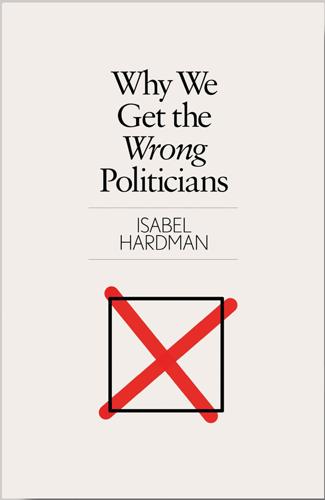
Why We Get the Wrong Politicians
by
Isabel Hardman
Published 14 Jun 2018
MPs had been chortling at someone else, but their giggles punctuated his first sentence, which was ‘My father died of cancer.’ He then added, to shamefaced silence from those opposite him, that his mother and sister had also died of cancer. The collision between question and behaviour elsewhere in the Chamber couldn’t have been worse. John Bercow, the Speaker of the House, frequently upbraids MPs for their behaviour, claiming that the public despises PMQs for its childishness. There is evidence that bears this assertion out. YouGov polling conducted for this book following the Prime Minister’s Questions session on 22 February 2017 found that only 2 per cent of adults surveyed had watched the session in full, while just under a third said they hadn’t watched this particular session but had watched PMQs before, and 54 per cent said they had never watched it.
…
A better form of question is the urgent question, in which a minister is summoned to the House by a backbench MP or an opposition frontbencher on a specific matter. Such is the battle for power in Parliament that nervous governments will often organise statements on something that has gone wrong in order to avoid being humiliated by a UQ, or appearing reluctant to face scrutiny. This system fell by the wayside until John Bercow became Speaker, whereupon he seized on the opportunity to make the government as uncomfortable as possible by granting hundreds of urgent questions. He has helped Parliament become a little more threatening to the government. Ministers sometimes try to dodge urgent questions by sending their juniors to answer them.
…
In Britain, voters back a party with a programme for government, and it is therefore reasonable to expect that the government should be able to deliver what it has promised without the ‘losers’ – the opposition – being able to intervene. In the US, if both houses of Congress are dominated by the president’s opponents, then he becomes a ‘lame duck’, unable to deliver anything particularly radical. There are other problems besides the legislative deadlock that critics of the American system cite. Speaker John Bercow is fervently in favour of strengthening Parliament, but very cool on the idea of a full separation of powers. When I asked him about this, he explained: ‘I think that the case would have to be made quite strongly as to why it is or how it would be that we would be better served if ministers were not directly and immediately accountable to the House . . .
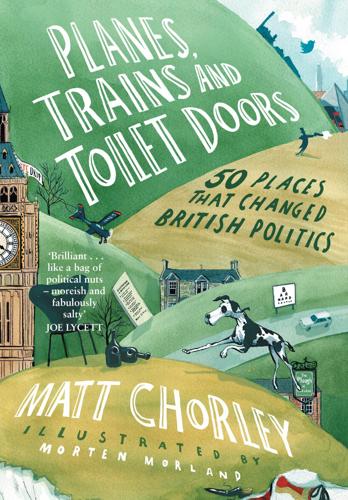
Planes, Trains and Toilet Doors: 50 Places That Changed British Politics
by
Matt Chorley
Published 8 Feb 2024
It means that Sadiq Khan, Chris Huhne, David Davis, Tony Blair, Betty Boothroyd, Neil Kinnock, Roy Jenkins, John Stonehouse and John Profumo were all stewards of the Chiltern Hundreds (good pub quiz trivia for you) while the subaquatic Manor of Northstead was briefly the responsibility of Cameron, Mandelson, Adams, Eden and Kilroy-Silk, along with John Bercow, David Miliband, Martin McGuinness, Matthew Parris and Enoch Powell. Johnson actually has the rare distinction of having held both offices after resigning twice. The first MP to become steward of the Chiltern Hundreds is known to be John Pitt in 1751. As for the Manor of Northstead: it’s complicated.
…
He had tried, unsuccessfully, to become an MP five times already (in Eastleigh in 1994, Salisbury in 1997, Bexhill and Battle in 2001, South Thanet in 2005 and Bromley and Chislehurst in 2006). Hoping it might be sixth time lucky, he stepped back from being party leader to commit to a proper run for the Commons in 2010. He chose, of the 650 seats available, to stand in Buckingham, notable because the sitting MP there was John Bercow, the former Tory MP who had been Commons Speaker since June 2009. By convention the main parties did not stand against the independent Speaker, so Bercow would have expected a clear run at re-election. Farage spotted an opportunity, both for publicity and the prospect of victory, claiming that MPs had ‘broken the trust’ of the British people and that Bercow ‘represents all that is wrong with British politics today.
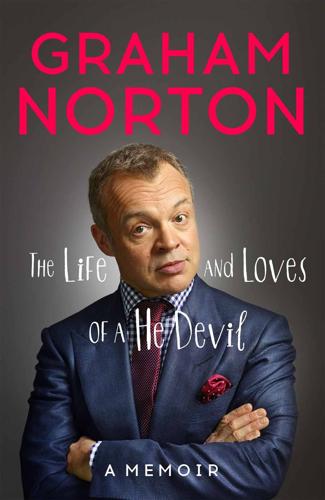
The Life and Loves of a He Devil: A Memoir
by
Graham Norton
Published 22 Oct 2014
I sort of enjoy random nights like this where you have no idea who you might meet. I took my friend, Roger, and we got lucky, spending most of our time chatting with Daniel Radcliffe and the rugby star, Ben Cohen, who was there with his lovely wife, Abbie. Happily we manage to avoid the Speaker of the House of Commons, John Bercow, and his wife, Sally. I had always assumed that John was slightly saddled with the embarrassment of being married to Sally but, that night, I discovered they truly do deserve each other. John got up to read the citation for an award winner and for some reason best known to himself, spoke for forty minutes.
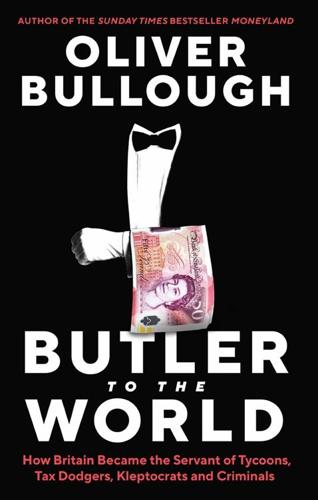
Butler to the World: How Britain Became the Servant of Tycoons, Tax Dodgers, Kleptocrats and Criminals
by
Oliver Bullough
Published 10 Mar 2022
Towards the end of 2013 he agreed another donation to Cambridge University and, in a series of events called the Days of Ukraine, opened trading on the London Stock Exchange and visited Parliament with his wife. ‘We are grateful to Firtash Foundation and all individuals who helped this to happen. We are also grateful to the Chairperson of the Foundation, Lada Firtash, who put all her energy and dedication in the implementation of this project,’ said John Bercow, Speaker of the House of Commons, according to a curiously ungrammatical Group DF statement. ‘The fact that we are hosted at the British Parliament, and that its Speaker came in person to greet us, demonstrates how important our country is to the UK,’ said Firtash in the same statement. In a photograph of the occasion Bercow and Firtash are shaking hands, while Lord Risby – as Richard Spring has been known since he was elevated to the House of Lords – leans slightly forward in the background, hands clasped around a highball glass, with the kind of rapt smile you’d see on the face of a proud father watching his son pick his way through a piano recital.
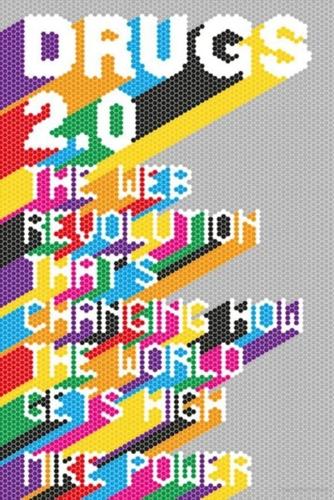
Drugs 2.0: The Web Revolution That's Changing How the World Gets High
by
Mike Power
Published 1 May 2013
‘He was last seen between 3–4 pm Sunday afternoon (February 12) at a free/squat party located on 1 Lea Valley Road near Chingford,’ his friends wrote on Facebook. His body was found in a nearby canal on 14 March.9 After the government ban was announced in late March that year, Sally Bercow, the wife of John Bercow, speaker of the House of Commons, tweeted, ‘Mexxy is a legal high that is, er, no longer legal. And now we’ve all heard of it, demand will rocket.’ And with that, the research chemical scene was at the heart of British political life, reported upon in Middle England’s tabloid of choice, the Daily Mail, and tweeted about by the wife of the Speaker of the House of Commons.10 In every major city in the UK and many small towns there were people buying new, untested and powerfully psychoactive chemicals marketed as legal highs, with no indication of what the drug was, what it did, or how it should be taken.

The Hidden History of Burma
by
Thant Myint-U
John Le Carré, who also received an honorary degree that day, said, “It was magic.” Eliza Manningham-Buller, the former head of MI5, was also there, and said, “I don’t think there was a dry eye in the house.”21 In London, Aung San Suu Kyi was given the very rare privilege of addressing both houses of Parliament. John Bercow, the Speaker of the House of Commons, described her as “the conscience of a country and a heroine for humanity.” When she met Prince Charles that day at Clarence House, nearly all the staff gathered outside to watch her plant a tree in the garden. The prince joked, “Is nobody doing anything in the office today?”
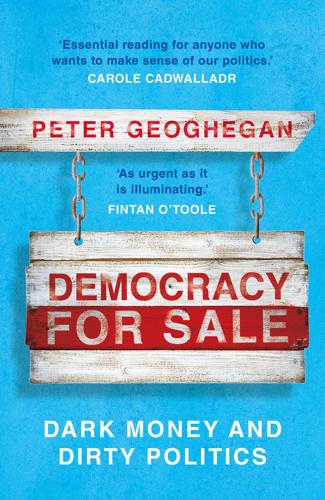
Democracy for Sale: Dark Money and Dirty Politics
by
Peter Geoghegan
Published 2 Jan 2020
“It was really good at going into detail of things like what was happening at the European Council. It was pretty nerdy. Which appealed to me.” The group’s headcount hovered around 20 Conservative MPs and a handful of Eurosceptic peers. Members included a number of Tories who would later be branded as sell-outs for their opposition to a hard Brexit: John Bercow, Oliver Letwin, David Gauke.17 Their ethos was less ‘Brexit do or die’ and more ‘what do the latest reforms to the Common Agricultural Policy mean for British farming?’ Conservative Eurosceptics did have one notable success in these wilderness years: they convinced David Cameron to make his ill-fated pledge to give British voters a say on EU membership.
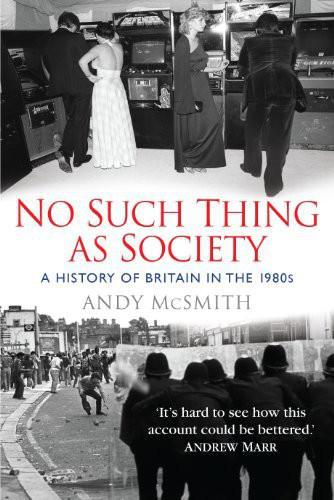
No Such Thing as Society
by
Andy McSmith
Published 19 Nov 2010
They restated that the club’s policy was: ‘An end to New Commonwealth and Pakistani immigration, a properly financed scheme of voluntary repatriation, the repeal of the Race Relations Act, and the abolition of the Commission for Racial Equality; particular emphasis on repatriation.’2 The committee chairman was the Conservative MP for Billericay, Harvey Proctor, and the committee secretary in 1981–3 was a student activist from north London, John Bercow, who many years later became Speaker of the House of Commons. (Sir Ronald Bell, that articulate voice of white middle-class rectitude, was no longer there to speak for the Monday Club, having died suddenly in 1982, in his Commons office, while having sex with a woman who was not his wife.) Bercow cut his ties with the Monday Club in February 1983, when he concluded that some of its members were racist.
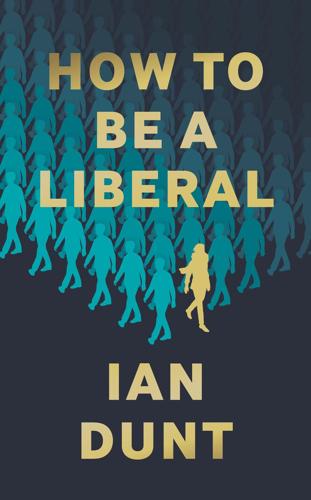
How to Be a Liberal: The Story of Liberalism and the Fight for Its Life
by
Ian Dunt
Published 15 Oct 2020
Almost overnight, some of the most respected and experienced politicians on the British centre-right were removed from the parliamentary party. One of the Vote Leave government’s first moves was to suspend parliament. On the morning of 28th August 2019, with just two months to go until the Article 50 deadline, the prime minister initiated a prorogation. The Speaker of the Commons, John Bercow, branded the move a ‘constitutional outrage,’ but he was powerless to stop it. In the early hours of 10th September, for the first time in the modern era, parliament was suspended against its will. Once again, the liberal system fought back. Miller took another case to the Supreme Court, amid more death threats and racial abuse.
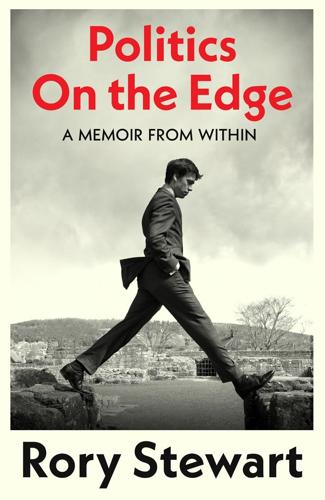
Politics on the Edge: The Instant #1 Sunday Times Bestseller From the Host of Hit Podcast the Rest Is Politics
by
Rory Stewart
Published 13 Sep 2023
There was a scent of stiff wet wool from a chalk-striped suit; and the expensive aftershave worn by Sir Peter Tapsell, the eighty-year-old Father of the House. I could smell the breath of smokers and heavy coffee drinkers. Some of the younger members were passing around altoid mints, or chewing on gum. Across the aisle: there seemed to be more women on the Labour benches, more young people. The first Prime Minister’s Questions began with John Bercow, the Speaker – a very small, broad-shouldered man, with a pale face and a mop of white hair – shouting ‘Order’ in the parade voice of a First World War artillery sergeant major, and holding the second syllable for three seconds. A tall MP stood, drawled ‘Question number one, Mr Speaker,’ and sat back down among a group of new Conservative MPs in their late thirties and early forties, who were sitting attentively, with neatly brushed hair and crisp white shirts, heads bowed to write carefully on their order papers.
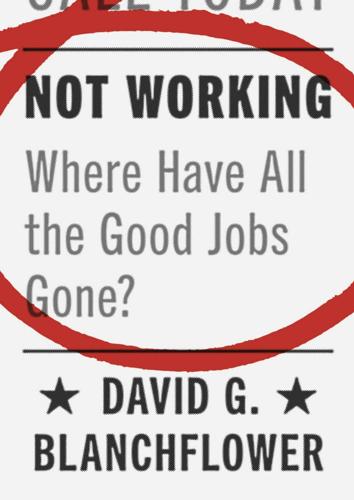
Not Working: Where Have All the Good Jobs Gone?
by
David G. Blanchflower
Published 12 Apr 2021
It was unclear why, after two and a half years of negotiating, she thought she could get more in an evening. The Sun’s colorful headline on her return was “EU Leaders Tell PM to Get Stuffed.” After two failed attempts to get May’s deal through Parliament, less than two weeks before the UK was meant to leave the EU at the end of March 2019, Speaker John Bercow announced that he would not allow a third vote on the withdrawal agreement without substantial changes. Bercow’s decision was based on an official parliamentary rule book that was first published by Thomas Erskine May in 1844 that says you can’t keep voting on the same bill hoping you will get a different result.
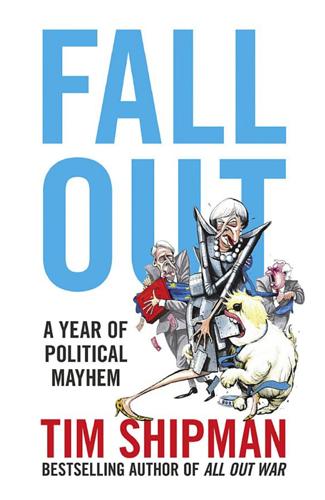
Fall Out: A Year of Political Mayhem
by
Tim Shipman
Published 30 Nov 2017
It is hard to fault the desire to put Britain at the front of the queue to influence the new president and secure a post-Brexit trade deal, but in the coming months such eagerness began to look like an error. The idea of a state visit by Trump attracted the threat of mass protests at home. On 6 February, the Speaker of the Commons, John Bercow, announced that he would be ‘strongly opposed’ to Trump giving an address in Parliament’s Westminster Hall, an honour accorded to Barack Obama but one that had not been offered to Trump. In March a fresh row erupted when Sean Spicer, the president’s press secretary, repeated a claim made by an analyst on Fox News that GCHQ – the British intelligence listening station – had been used by the Obama administration to spy on Trump Tower.